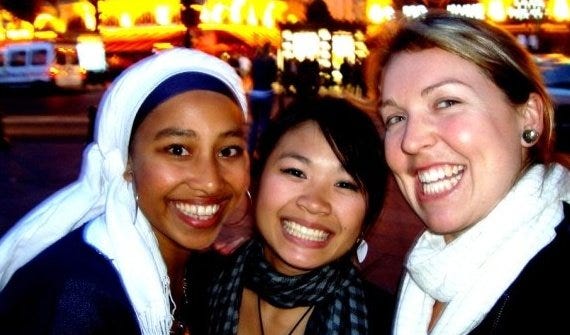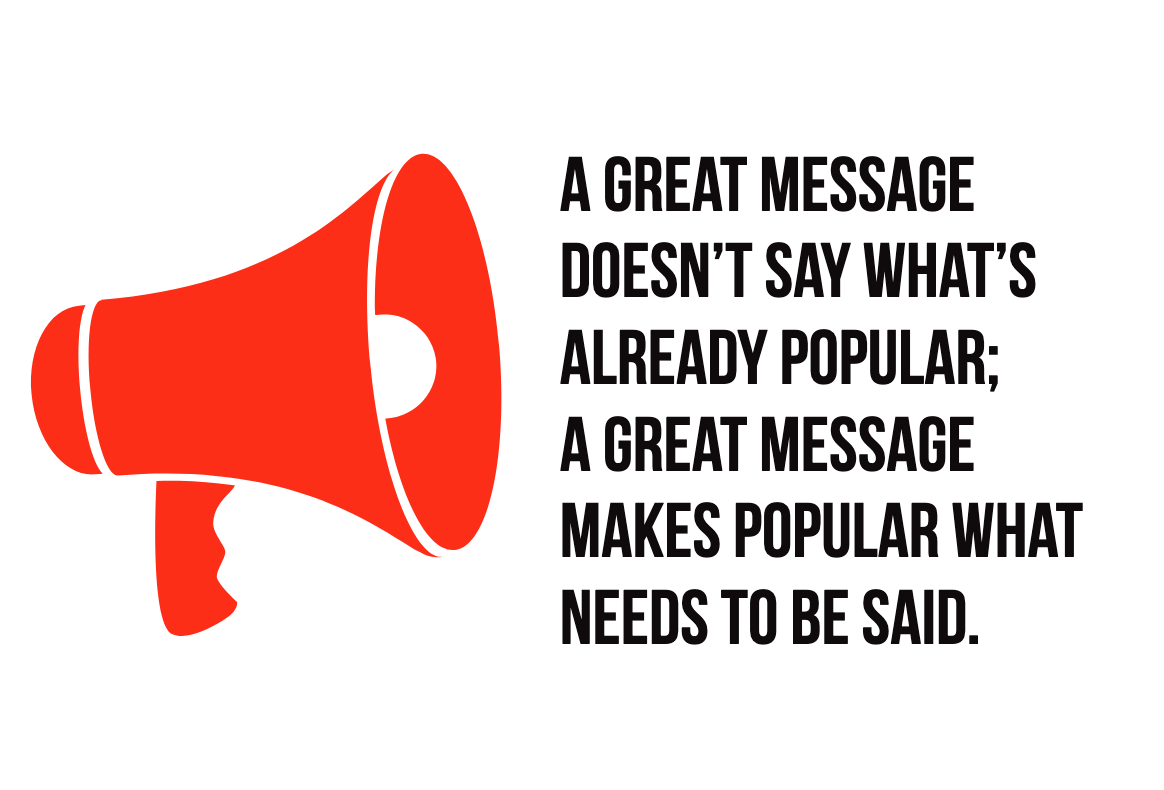When I was 18 and a second year engineering student, I found out about an summer engineering program… in Paris. (I know you know my feelings about Paris, but I was 18 and impressionable, okay?)
I’d never traveled overseas on my own before, and my father wouldn’t even let me go to a theme park with friends, so I knew it was highly unlikely - nay, nigh on impossible - that he would allow such a fanciful jaunt. A three week trip to Paris! Alone! Ajeh!
But I am nothing if not my father’s daughter, a resourceful woman when I need to be. I knew the mustached patriarch wouldn’t listen to my plaintive appeals about the value of travel, or how much fun it would be to traipse across the cobblestones, munching on crepes, my hijab fluttering in the Parisian breeze. (For context, when I asked to go to Dreamworld for fun, his reply was: ‘why? there is no purpose in fun’). What he would pay attention to however, was status conferred by an institution, especially one linked to higher education.
So, I convinced the associate Dean of my faculty to sponsor the flight, and presented the proposal to my father. Baba, I’ve been selected for this exclusive engineering camp (who doesn’t love an exclusive), and the university is supporting me to go.
Well, when put it like that, he could hardly say no, could he?

Years later, on a graduate training trip at a big oil company (the training was between the Netherlands and Belgium, I’d come a long way advocating for my purpose-related travel by then), we were taught there are various ways folks can be ‘persuaded’. There are those that will only do something because of a personal relationship. Those who need to be shown evidence, facts, reportage. Those who need to have the messaged delivered by trusted authority figures (The ‘Credible Colleague’ Approach), and so on.
We were being taught this in the context of a workplace, of learning how to be leaders, how to motivate teams to gather behind a project mission, but I’ve often thought of its utility in life and in social justice movements. How do we employ different techniques to persuade others to our cause, and how are we persuaded?
When I give leadership keynotes, one of the questions I often ask the crowd is this: when was the last time you changed your mind?
The question is typically greeted with an awkward, shifting silence, because it doesn’t happen that often, does it? As adults, particularly if we are strong minded creatures (like many a leader and organiser!), we can very easily go through the world with our mind made up about most things, assured we are right, certain that all we have to do is persuade everybody else to join our position.
Now, I’m not saying we shouldn’t be going out and convincing others to join a worthy cause. But what I do like to do is remind myself that just as I can be slow to change my mind, others may be also. That allows me to have patience in the process, a measure of grace in my dealings. It allows me to approach change-work with humility, with an understanding that what I am hoping from others is rather a large ask, and if I am wanting others to change, I must also be willing to change myself. There is a humility required in any change-making work. We must be both sure and open, gripping the hot coal of belief with light fists.

Maybe, I’ve got this all wrong. Maybe we do actually change our minds all the time, otherwise pundits wouldn’t agonize over daily polls, elections wouldn’t be so tightly fought. I wonder sometimes, whether the stories we tell ourselves about how difficult it is to change another influences the reality, and whether all of this is simply part of the human condition, the forever grappling to make the world see as you do.
Doing a little Sunday morning digging into this, I came across thousands of puff pieces and two more interesting studies. One described the problem glibly:
Opinions come easy. With almost no information at their disposal, people nonetheless form lasting impressions of strangers, feel connected or disconnected with new doctors, teachers, and salespeople. “Preferences,” as once put, “need no inferences”.
Their conclusion was striking: Minds are made up sooner than people think, and people don’t use much information to decide. Interesting, I thought. Was that useful, or only sad? I couldn’t decide.
The second study I looked at was a deep dive on a subreddit called ‘ChangeMyMind’, where an Original Poster (OP) posts an opinion and asks other users to convince them otherwise. The study investigated what made certain interactions ‘successful’, and the super nerdy read came to some intriguing conclusions.
Although engaging the OP in some back-and-forth is correlated with higher chances of success, we do not see much OP conversion in extended conversations. As for opinion conversion rates, we find that the more participants there are in the effort to persuade the OP, the larger the likelihood of the OP changing her view; but, interestingly, the relationship is sublinear.
Somberly however, the study admits: “In the majority of cases, however, opinions are not changed.” Alas.
I don’t know what to think about all this, ironically. I came into writing this post with a clear idea about a message I wanted to change about the importance of changing our own minds, but now, I am not so sure. All I keep thinking about is this line from the reddit study:
The feature with the most predictive power of successful persuasion is the dissimilarity with the original post in word usage.
We never want to be told why we are wrong. That’s always too intense, no matter who you are. But I think I’m almost always open to being invited into a different reality. That’s why a statement like ‘Free Palestine’ continues to hold so much power. It is an invitation into something new, it creates its own imagined future. Maybe that is what I leave you with this week.
What are the new realities you are inviting those around you into? Would love to hear your thoughts in the comments below…!
My recommendations this week are a mixed bag of treats. Enjoy!
1. The work of Anat Shenker-Osorio

I’ve followed Shenker-Osorio’s since I was first introduced to her in the mid-2010s. She’s a renowned progressive strategic communicator, and her work has been pivotal in shaping my understanding of crafting powerful messages that connect. Here are two places you could begin to understand her work: the ever-green document Messaging This Moment: A Handbook for Progressive Communicators and the recording of a podcast episode, available via YouTube below.
2. Podcast: The Kids of Rutherford County
I’m not a huge fan of the True Crime genre, but this Serial produced mini-series feels in keeping with today’s theme. A lawyers notices a systemic issue in the county he’s working in - the police keep arresting literal children - and tries to figure out how he can change it… have a listen and let me know what you think! Great for a binge.
3. This is Us, This is SUDAN
If you haven’t seen this wonderful video showcasing the beauty of Sudan, now is the time (not that you need any persuading of the beauty of my country!). It was shown recently at the opening of the Sudan Humanitarian Crisis conference held in Egypt that many wonderful civil leaders were at. Let’s see if it makes a difference, shall we?
PS: Happy News!
I wanted to share this news if you haven’t seen already, but my latest book Stand Up and Speak Out Against Racism was named one of SLJ’s BEST BOOKS OF 2023!
Alhamdulilah - the School Library Journal is quite influential in the US children’s book space, so it’s a really wonderful nod of recognition to receive.
Thank you, as always for reading and supporting my work. As always, I am eternally grateful. As a freelancer of almost a decade, income from this newsletter makes the world of difference, and every little bit counts. If you feel like you have the capacity to support my work, do consider upgrading to a paid subscription.
In Case You Missed It
I’ve got a little giveaway going on my Instagram page. Click through and check it out!
Until next time,
Yassmin






I am a big believer in staying open to changing my mind as I learn new information, perspectives, etc. It feels wrong to not be that way. I think I don't over-identify with most beliefs, or I try to be aware when I do and let go a bit.
In inviting others, I try to share information gently and with curiosity, "hey, this is interesting." "Have you heard about..." It's an introduction, and then I leave it for someone to consider or not consider. Presenting anything as a big lecture or insinuating that I'm better does not work at all for me.